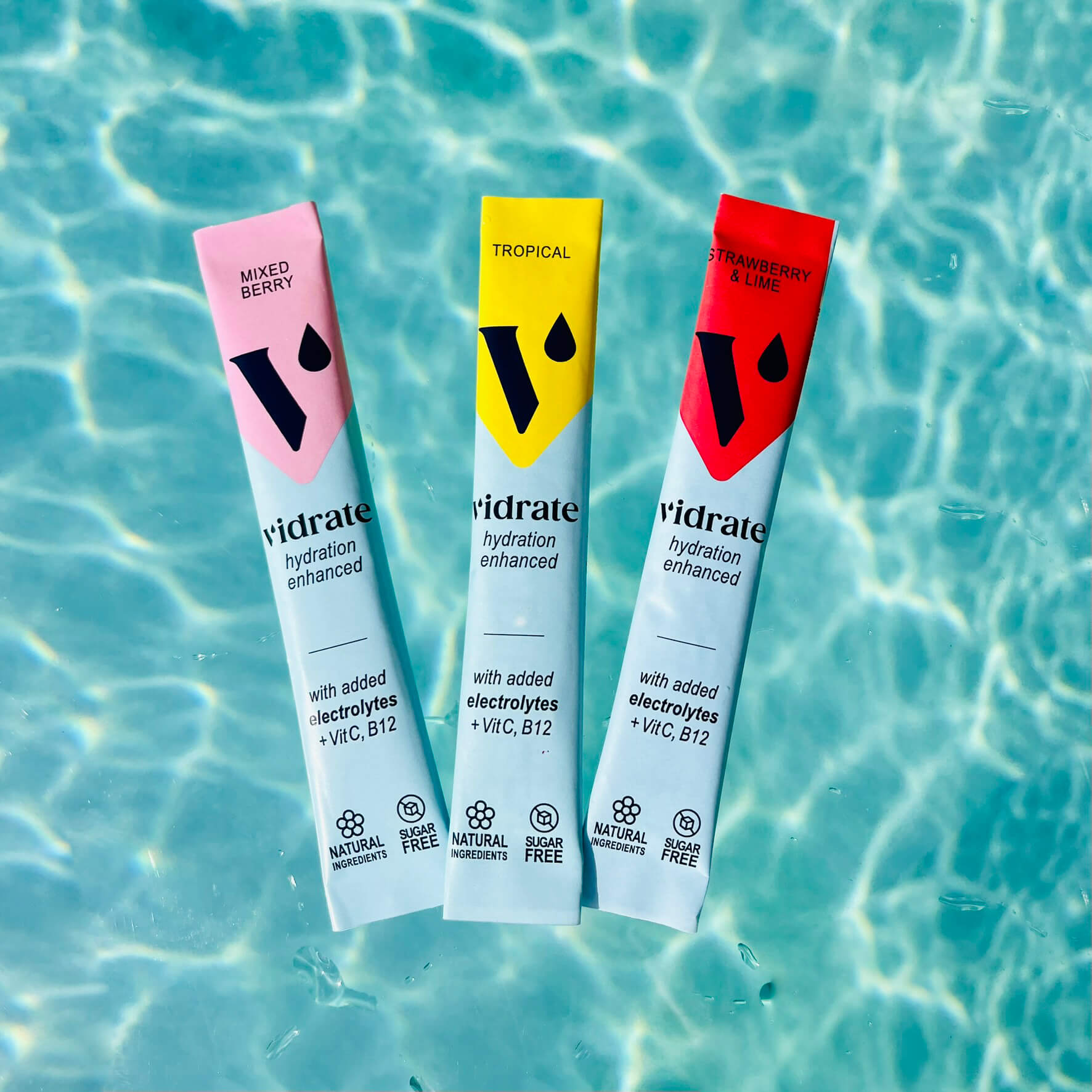What is Coconut water?
Coconut water is found within all coconuts and whilst growing the water helps to develop the rind of the coconut. When we eat coconuts, we don't often think about the benefits of the water too! When harvesting coconut water, the farmers usually use coconuts that are about 6-7 months old. This is as the coconut grows and develops the water helps to ripen the coconut meat, this means that a ripe coconut usually has less liquid. Younger coconuts are also preferred as their water has been found to be tastier as well as easier to access. Coconut water often gets confused with coconut milk, the milk is created from the meat of the coconut not the water, the milk contains more fat whereas the water is usually low in sugar.
In recent times, coconut water has become one of the trendiest ways to hydrate. As well as being good for your image, coconut water also has many other health benefits as they contain lots of nutrients and minerals that you don't get enough of but delving into the details, is coconut water any better for you than standard water or other sports drinks?
Does Coconut water have any health benefits?
As stated above coconuts contain lots of minerals and nutrients, being 94% water, it is not only a great way to hydrate but a great source of electrolytes whilst having a low carbohydrate content. You have to be cautious when you are purchasing from leading supermarkets as some of their products can contain added sugar and preservatives, which has an impact on the health benefits.
As well as providing you with essential minerals, coconut water also can help to prevent kidney stones. Although kidney stones can be avoided by drinking normal water studies have demonstrated that coconut water prevents the crystals that form kidney stones sticking to the kidneys and urinary tract. As coconut water can help to completely flush the system, this will keep the chance of kidney stones low.
Coconut water contains potassium, this has been shown to help to reduce blood pressure so a diet with coconut water can help to reduce high blood pressure. The potassium does this by helping to lower cholesterol. As well as this potassium and other salts contained in coconut water are a great replenishment of electrolytes. Alternatively, there are other fruits that can contain more potassium than coconut water such as bananas and oranges, but a high potassium diet isn't always ideal.
Throughout the day our body loses electrolytes, through sweating, exercising, urinating and many other areas. Our body works better with electrolytes, and we need to maintain these electrolytes to make our body feel good day to day. This is my coconut water is especially great after exercise.

Is Coconut water better than sugary drinks?
Compared to many sports drinks and juices, coconut water contains less sugar and could be a perfect replacement for both adults and children. Although some drinks can contain lower sugar and lots of water brands include electrolytes, lots of people in the UK don't drink water as they don't like the taste of water. As coconut water has a sweeter taste it is preferred over many leading water brands that contain electrolytes.
Many sports drinks contain artificial sweeteners and dyes to reach the desired colour and taste and within a standard bottle of a sports drink it can contain approximately 50 calories and 14 grams of sugar. The average unsweetened coconut water contains 40 calories and 9 grams of sugar.
Experts have warned that adding too much coconut water to your diet can be dangerous because the number of calories per drink can add up and this can be dangerous if you are trying to be cautious of your calorie intake.
Is Coconut water good for athletes?
Some athletes abide by coconut water, athletes that take part in marathons have found that as they are running and hydrating throughout with coconut water, they feel more refreshed, have more energy, and subsequently cramp less. Athletes have also stated that in humid weather conditions the coconut water helps more as they sweat more through exercise, losing electrolytes. Coconut water does have an acquired taste and some athletes do prefer the taste of sports drinks, but studies have shown that coconut water can replenish the bodies fluids and minerals better than some sports drinks, you just must enjoy the taste.
Nutritionists sometimes have a different opinion on athletes drinking coconut water to rehydrate after exercise. Some say that coconut water cannot hydrate you the way normal water can unless you drink it in a large volume and if you can tolerate the taste and drink lots of coconut water this could keep you hydrated but the odd glass of coconut water will not hydrate you like a normal glass of water would.
Athletes use this information with caution, many athletes see coconut water as a healthier and more nutritious form of sports drink but if they are not enjoying the taste, they prefer the sports drinks.

Are there any negatives to drinking Coconut water?
When drinking in large amounts coconut water can cause a large increase in the potassium levels within the blood and this can lead to various kidney problems as well as an irregular heartbeat, this is only seen in extreme cases where there has been an overuse of coconut water.
Like mentioned above, coconut water can contain some calories and if you are enjoying the taste and drinking lots of coconut water daily this can up your calorie intake by quite a bit. Although it contains less sugar than similar drinks, the calorie contents can be seen as a negative.
Unsweetened coconut water can also be quite an expensive drink to help you stay hydrated. In the UK a 250ml bottle of coconut water can cost anywhere between £1.99-£5 and that depends on whether the coconut water has had any additives.
What do experts say about Coconut water?
Many experts state that staying hydrated is the most important factor and how you get that hydration isn't too large of an issue. If coconut water is a taste you prefer and you can drink it in a large quantity, it can be a great way to get some all-natural hydration, but if you enjoy drinking normal water, this can workout more beneficial in the long run.
Experts advise athletes who take part in rigorous, frequent exercise may not reap all the benefits of coconut water that normal people do. When athletes are exercising and losing body fluids and with these fluids, they are losing lots of essential nutrients, coconut water just doesn't include enough of these nutrients to replenish the body needs.

How do I pick the best coconut water?
When entering a supermarket there are many types of brands of coconut water that can all contain many different ingredients. The best option is to pick an all-natural, organic brand as these generally don't have any additives or preservatives. Canned versions have normally been pasteurised and processed by a heat treatment to extend their shelf life. The easiest way to ensure you are picking the right coconut water is to check the label and check to see if anything has been added, it is usually best to avoid water that contains flavouring as these usually have a higher calorie and sugar content.
To finalise, there are some huge benefits to drinking coconut water but there are also aspects that some nutritionists think normal water is the better option. If you enjoy the taste of coconut water and want something tastier and sweeter than standard water, coconut water isn't going to cause you any hard unless consumed in large amounts.
If you aren't too worried about calories mounting up, coconut water is a great way to get your daily intake of nutrients and minerals whilst staying hydrated. The bottom line is, there just isn't enough research to back up the benefits of coconut water!
All we know for now is coconut water is a great all-natural drink for hydration and it will do great things for your social image! Let us know in the comments below where you would like to sip your coconut water.











